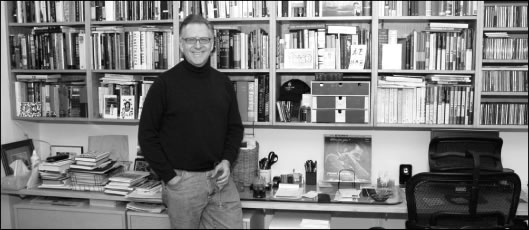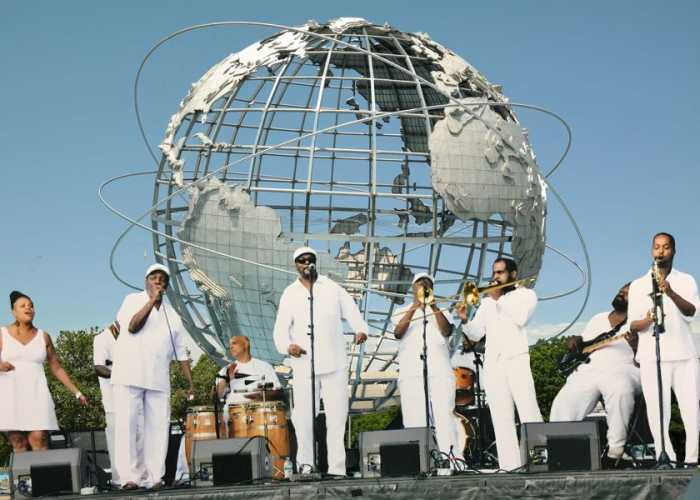BY STEPHEN WOLF
Prolific editor, poet dazzles with decathlon-like skills
Most of us are both inspired and humbled watching a superb athlete perform. We have probably long since ceased dreaming of doing what they do, but still marvel at what a person can achieve — and though dazzled by a sprinter or someone who does on Iron Cross on still rings, the decathlon champ truly is the greatest athlete, the fittest warrior.
That’s the kind of guy I hung with the other day. He doesn’t just edit books or write literary history or is simply a fine poet — though doing just one of these well would be heaven enough for most of us. He does them all; and I don’t mean a jack-of-all-trades-master-of-none kind of guy.
He’s edited the thousand-plus page “The Oxford Book of American Poetry” — a monumental and immensely valuable anthology of American poetry. His “The Last Avant-Garde: The Making of the New York School of Poets” is a brilliant, thoroughly researched, wonderfully intimate story of the relationships between the poets and painters who worked, mingled, and slept together in the New York of the 1950s when the city became the art capital of the world. His most recent work of non-fiction is “A Fine Romance: Jewish Songwriters, American Songs” — and what he wrote about Jerome Kern and Oscar Hammerstein’s song “Ol’ Man River” is thrillingly insightful.
After he explains how Jewish and African-American music blended in New York in the 1920s, we read this: “When the black male chorus in ‘Show Boat’ reaches the end of the second verse…where the singers can envision the river Jordan, the ‘old stream’ that they long to cross…Kern’s majestic music makes you feel that unreachable heaven looms near as a prayer or a worker’s dream of liberation from ‘the white man boss.’ The song ennobles singer and listener not because it acknowledges that failure is our common lot — we are all sick of trying, tired of living, and sacred of dying — but because we are moved to sing about it with robust voices and to celebrate something greater than ourselves: the natural wonder of the Mississippi River that just keeps rolling along, powerful and timeless, like a divinity.”
What I first read of his was the poem “The World Trade Center” (1993):
I never liked the World Trade Center.
When it went up I talked it down….
But his “whole attitude … Changed overnight” after the first attack that ominous day in February:
I began to like the way
It comes into view as you reach Sixth Avenue
From any side street, the way the tops
Of the towers dissolve into white skies
In the east when you cross the Hudson
Into the city across the George Washington Bridge.
He’s David Lehman, and he’s been a pillar for modern poetry for over two decades. New York born, a student at Stuyvesant High School when it was still on East 15th Street, he discovered early “A Concise Treasury of Great Poems” edited by Louis Untermeyer (I still have my copy, published in 1964, for fifty cents).
Though he didn’t understand Milton or Keats “They sounded so good,” he said with quiet passion as we shared an early lunch in the Village — where I had something with gin; but David, still feeling last night’s after-class indulgences, had a double expresso. He answered my questions thoughtfully, at times with a penetrating gaze which easily and often broke into an engaging, youthful, slightly mischievous smile.
He’s tall, lean, light, and if not for being a major player in the world of modern literature, he could be in theater with that flexible face and a voice trained in music (which greatly enhances his readings when he recites his poetry).
Walt Whitman’s “Song of Myself” had amazed him that poems could still be poems with neither rhythm nor rhyme, and while at Columbia University he read Donald Allen’s ground-breaking “New American Poetry 1945-1960” — which gathered the new, unconventional verse written after the Second World War. He took classes taught by some of the most innovative poets of our time, studied at Cambridge in England where he received a Masters in both literature and French, then returned to Columbia for his PhD.
Since 1996, he has taught writing and literature at the New School Graduate Writing Program. For a decade, he led a “Great Poems” class to honors students at NYU. Informal, witty, comfortable, and hugely knowledgeable before a classroom, he once spoke to my poetry class; and when a student asked about a poem but could remember nothing but a fragment of the title, David calmly (as if it had all been rehearsed before) recited the entire piece.
He’s lived all over the Village (West 13th, University Place, Waverly, MacDougal, Perry) and now with his wife Stacey Harwood — down where Fifth Avenue begins. He likes Greenwich Village for its coffee houses and clubs, bars and restaurants, and the Union Square Market that he can leave for five minutes before class starts.
In time the decathlon champ blew out his left knee and the gymnast had rotator-cuff surgery; but at 61, David’s at the top of his game. His third and most recent collection of poems, “Yeshiva Boys,” appeared from Scribner’s last year; and “The Best American Poetry of 2009” was just released. He’s been editing this annual treasure since he initiated the series in 1988. Last Friday, he read at the Lillian Vernon House on West 10th Street. He read well, the place was packed, and afterwards he remained to speak with the many who wanted to speak to him. One young man shook his hand and said, “You’ve really touched the lives of some of my friends,” and like the ballplayer who gives an autograph to every kid who’s there waiting for one, David was the last to leave.
He’s reading again, only next time with the poet Julie Sheehan on May 3rd at the renowned Monday Night Poetry series at KGB — that downbeat upstairs bar on East4th Street just west of Second Avenue. David will be quite welcomed, for he and Star Black started the readings there back in 1997.
I could have hung all day with David; but there’s something about him that makes you want to get back to work. He gave me two of his latest books which he inscribed, and though this interview and article were about him, he picked up the check anyway — which he surely would have done even if he hadn’t finished most of my gin-something.

































